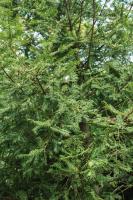Do Rubber Tree Plants Like Sugar?
Rubber tree plants, also known as Ficus elastica, are a popular houseplant due to their attractive glossy leaves and ease of care. While they do require regular watering and indirect light, many plant owners wonder if their rubber tree plant will benefit from sugar. But do rubber tree plants like sugar?
Understanding Rubber Tree Plant Nutrition
To answer the question of whether rubber tree plants like sugar, it's important to understand their natural nutrition requirements. Rubber tree plants are native to tropical regions and typically grow in nutrient-rich soil with plenty of sunlight and rain. They obtain the majority of their nutrients through their roots, which absorb minerals and water from the soil.
Rubber tree plants do not require sugar as a part of their nutritional intake. In fact, adding sugar to the soil or foliage can actually harm the plant rather than improve its health. This is because sugar can attract harmful insects and pests, which can damage the plant and cause diseases.
The Dangers of Adding Sugar to Rubber Tree Plants
Adding sugar to the soil or foliage of a rubber tree plant can lead to several negative consequences. Sugar can promote the growth of harmful bacteria and fungi, which can cause root rot and other diseases. The sweet substance can also attract pests like mites and scale insects that feed on the plant's sap, causing damage and potentially killing the plant.
Additionally, sugar can change the pH level of the soil, making it too acidic for the rubber tree plant to thrive. This can cause nutrient deficiencies as the plant struggles to absorb the minerals it needs to grow and develop.
Alternative Nutritional Options for Rubber Tree Plants
While rubber tree plants do not require sugar to thrive, there are several alternative nutritional options that can benefit the plant's health. Adding organic matter like compost or aged manure to the soil can provide additional nutrients and improve soil structure. Fertilizing the plant with a balanced mix of nitrogen, phosphorus, and potassium can also promote healthy growth and foliage.
Maintaining proper watering habits and providing adequate sunlight are also crucial for the health and growth of rubber tree plants. Overwatering or exposing the plant to direct sunlight for prolonged periods can lead to leaf drop and other issues.
In Conclusion
While some plant owners may believe that adding sugar to the soil or foliage of their rubber tree plant can improve its health, this is not the case. Rubber tree plants do not require sugar as a part of their nutritional intake and can actually be harmed by its addition. It's important to understand the natural nutrition requirements of plants and provide them with the proper care and nutrition that they need to thrive.

 how many times do yo...
how many times do yo... how many planted tre...
how many planted tre... how many pine trees ...
how many pine trees ... how many pecan trees...
how many pecan trees... how many plants comp...
how many plants comp... how many plants can ...
how many plants can ... how many plants and ...
how many plants and ... how many pepper plan...
how many pepper plan...






























